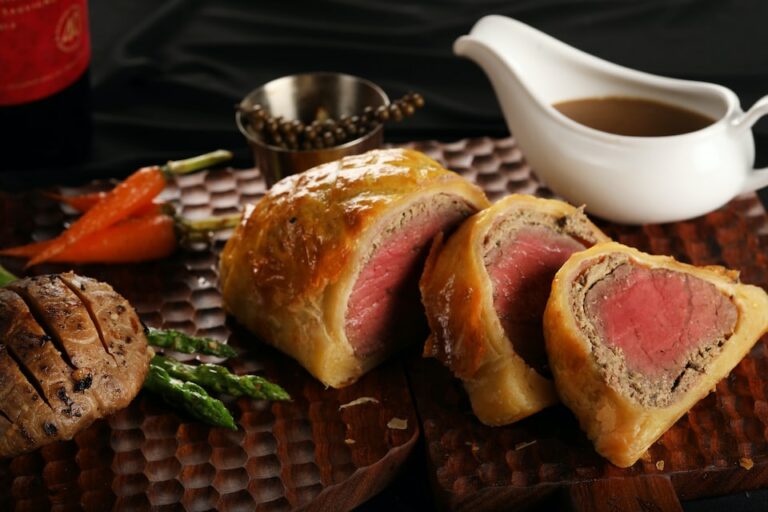Introduction: The Rich History of British Cuisine
British cuisine is often associated with hearty and simple dishes like fish and chips, shepherd’s pie, and roast beef with Yorkshire pudding. However, the cuisine of the United Kingdom has a rich history that spans centuries and has been influenced by various cultures and cuisines. Over the years, British cuisine has evolved and been shaped by the country’s history of migration, trade, and conquest, resulting in a diverse and flavorful cuisine.
The Influence of Roman and Norman Conquerors
The Romans and Normans had a significant influence on British cuisine. The Romans introduced new ingredients like cherries, plums, and grapes, and techniques like making cheese and brewing beer. The Normans, on the other hand, brought with them a love of meat and fine dining, which led to the development of dishes like roasted meats, game pies, and stews. The influence of these two groups can still be seen in some of Britain’s most famous dishes, like beef Wellington, which has French roots but was popularized in the UK during the 19th century.
The Impact of Indian and South Asian Flavors
The British Empire’s colonization of India led to the introduction of many new spices and flavors to British cuisine. Curry, for example, is a dish that was developed in India but became popular in the UK during the 19th century. Other Indian-influenced dishes include balti, vindaloo, and tikka masala. South Asian flavors like cardamom, coriander, and turmeric are now commonly used in British cooking, adding depth and complexity to dishes like stews and roasts.
The Role of North African and Middle Eastern Spices
The Middle East and North Africa have also had a significant impact on British cuisine. Spices like cumin, cinnamon, and saffron were introduced to Britain during the Crusades, and dishes like tagine and couscous are now popular across the country. Middle Eastern sweets like baklava and Turkish delight have also found a place in British cuisine, often served alongside tea.
The Contribution of French and Italian Techniques
The culinary traditions of France and Italy have had a profound impact on British cuisine. The French introduced techniques like sautéing, braising, and making sauces, which helped to elevate British cooking to new heights. Italian cuisine, on the other hand, inspired dishes like spaghetti Bolognese, lasagna, and pizza, which are now staples in British restaurants and homes. The use of olive oil, garlic, and fresh herbs is also widespread in British cooking.
The Fusion of Global Cuisines in Modern British Cooking
In recent years, British cuisine has been transformed by a fusion of global cuisines. Many chefs in the UK are now combining traditional British ingredients and techniques with flavors and ingredients from around the world, resulting in dishes like Korean fried chicken burgers, Mexican-inspired tacos, and Indian-style fish and chips. This blending of cultures has created a vibrant and exciting food scene in the UK, with new flavors and dishes constantly emerging.
In conclusion, British cuisine has been shaped by a rich and diverse history of migration, trade, and conquest, resulting in a cuisine that is both traditional and innovative. The influence of Roman and Norman conquerors, Indian and South Asian flavors, North African and Middle Eastern spices, and French and Italian techniques can all be seen in British cooking, while modern chefs are blending global cuisines to create exciting new dishes. British cuisine may have humble origins, but it is now a vibrant and dynamic part of the global culinary scene.

